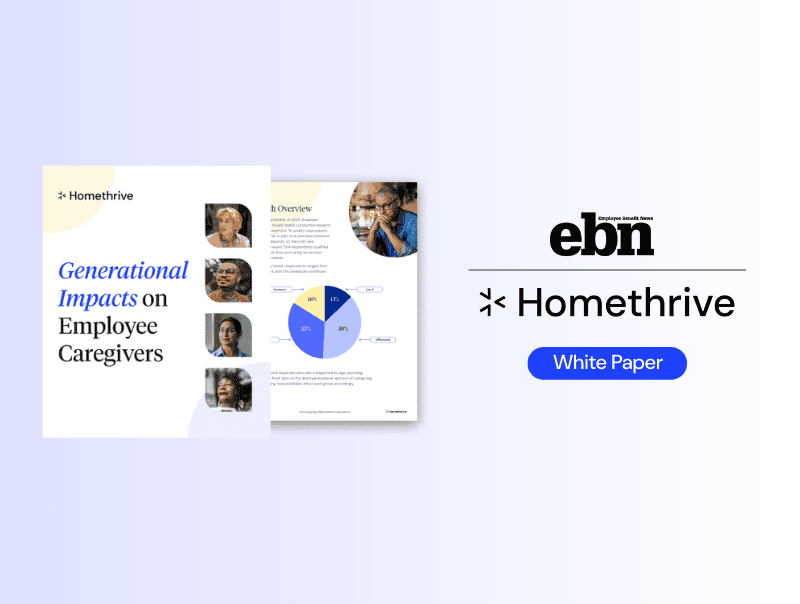In many organizations, excellent performers are often promoted to management positions. Unfortunately, these promotions rarely come with training in HR policies and procedures. This is a problem because an employee’s manager is often their first stop when looking for answers about benefits, including PTO and leave. If a manager gives incorrect or incomplete answers about your company’s leave policy it can result in confusion, incomplete work coverage, hurt feelings, reduced employee engagement, and even legal complications and unnecessary turnover.
Here is what your organization’s managers need to know about leave management.
What Is Leave Management
Leave management is the term for all aspects of employees taking time off. Leave management includes regular PTO, FMLA, parental leave, caregiver leave, bereavement leave, and unpaid leaves of absence.
An effective leave management system and policy helps people be more productive and confident in their job. It also helps an organization stay compliant with laws and regulations. No one who suddenly finds themselves needing to take time off to help an ill loved one wants to spend hours going through the employee handbook, or in conversation with their manager just to understand their benefits. No manager wants to accidentally deny a good employee appropriate leave.
Legal Requirements of Leave Management
It is not reasonable to expect your managers to keep up with all the federal and state legal requirements surrounding leave. What is important is that managers know the broad outlines of the requirements and who in the organization they should ask for more information. All managers should be given a specific person to talk to about any HR-related policies, including leave.
Federal Leave Requirements
If your organization has over 50 employees, you’re legally required to offer medical leave. This is governed by the Family and Medical Leave Act (FMLA). You must offer employees who meet certain qualifications up to 12 weeks of unpaid leave if they or a family member are experiencing a medical situation, such as having a baby or going through an illness. The employee must be allowed to return to their original job.
There are also requirements for military leave. If an employee leaves your company to perform military service, they can take up to five years off with job protection. This leave can be unpaid, but there are requirements for providing insurance and they must be given a comparable job upon their return.
Leave Policy for Caregivers
FMLA can be used for various kinds of caregiving leave as well. Eligible employees are entitled to 12 work weeks of leave a year to provide care for their partner, child, or parent with a serious health condition.
For members of Homethrive, caregivers also have access to Care Guides who are trained to help you transition from work to home and back again. They are available to support caregiving efforts throughout an employee’s leave period, and will continue to follow up even as the caregiver returns to work full-time.
State and Local Leave Requirements
States differ dramatically when it comes to leave laws. For example, some states require employers to offer paid family and medical leave. Some require employers to offer paid sick leave. Some states require time off for voting. Almost all states require jury duty leave time, but not all require this to be paid time off. In addition, different cities and even counties may have separate laws.
It’s important to know that if you have remote employees you are required to honor the laws where they live, not where your organization is based. This can add an extra layer of confusion for leave management. Many organizations choose to honor the most lenient policies for all employees. You can find requirements for all states through the Department of Labor.
Employee Handbooks
An employee handbook is a document that outlines the company’s policies and procedures and sets expectations for behavior. An employee handbook can also be an important part of the employer’s brand, letting employees know what the organization values. Any leave policies should be easily located in the handbook and be clearly written. All employees should have easy access to the most recent version of the employee handbook. Managers should be especially familiar with the information in the handbook.
What if You Don’t Have a Leave Policy
A well-defined and well-communicated leave policy is one of the most important benefits you can give an employee. For newer organizations, involving employees in conversations about leave and drafting policies can help solidify company values and ensure that the needs of employees are considered.
If your organization does not have a leave policy all final decisions surrounding things like caregiving leave or maternity leave should be handled by the same person. This will help make sure that questions around leave are legally compliant and equitable between employees.
Empower Managers to Ask Questions
When an employee is seeking medical leave, or leave to care for a loved one, they are often stressed. While they may want immediate answers from their manager about their benefits or plans, managers need to proceed cautiously to avoid giving wrong information and causing potential legal issues.
Leave management can be a complicated process requiring excellent record keeping and adherence to policies. The most important thing any manager can know about your company’s leave policy is that it’s ok for them to ask questions and refer the employee to HR.
Find out more ways to support your employee caregivers by learning about the benefits that can help. To receive caregiving benefit insights delivered straight to your inbox, sign up for our weekly newsletter.







